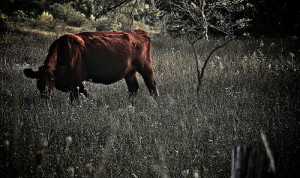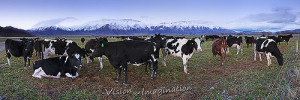We have heard the old saying that “we are what we eat.” This saying has a great significance because what we eat has a great impact on how we live. It is closely related to our health and environment. In recent years, there has been an increased demand for food that is ethically produced and also sustainable. Along with an increase in the amount of organically grown farm lands around the world in the recent years, the concern for growing animals with organic products and awareness for livestock welfare has also increased.
Organic farming has now reached new international standards with 84 countries around the world implementing it. There are many aspects of organic farming that benefits the ecology and environment because organic farming does not input any harmful chemical fertilizers, toxic insecticides or synthetic materials into the plant and soil. It also relies on ecological process such as waste recycling and natural pest control methods.
Organic farming can especially outperform the conventional farming methods and benefit the land which has been farmed for a long time and has been going through droughts. The conventional agricultural methods, on the other hand, may degrade the quality of the land and may cause soil erosion, excessive water withdrawal and may cause loss of biodiversity to the land.
 For many third world countries like Africa and Asia, agriculture is the only way to address the growing poverty, to increase self dependency and to reduce need for foreign aids to support their economy. Even in America, the food grown with organic products can significantly reduce our chances of damaging the environment through insecticides and chemical fertilizers. By keeping the nature and ecology in perfect balance and by avoiding the toxic materials in it, we can considerably increase our chances of growing a better livestock.
For many third world countries like Africa and Asia, agriculture is the only way to address the growing poverty, to increase self dependency and to reduce need for foreign aids to support their economy. Even in America, the food grown with organic products can significantly reduce our chances of damaging the environment through insecticides and chemical fertilizers. By keeping the nature and ecology in perfect balance and by avoiding the toxic materials in it, we can considerably increase our chances of growing a better livestock.
Adding harmful chemicals in the environment not only harms the animals in their natural habitats but subsequently harms us because the chemicals get put into our bodies through the food we eat. Many of the foods that we eat today have insecticides, preservatives, or chemical fertilizers in it that harms us in the long run and has long term side effects.
Now there are many animals that are hormonally treated to produce more meat, milk or other products which have been linked to several severe health issues. Substances like the GMO grains for fattening the cows have been found to cause several health issues in humans.
To increase the production of farm products, growing a diverse group of edible plants along with grass has been proven to supply the livestock with more nutrition and it also allows the land to retain most of its nutrients and water. It also helps the animals to grow in a natural way without hurting the environment it improves the overall sustainability of the farm.
 Planting both trees and shrubs as feed allows the farm animals to have a more variety of food, such as the leaves and branches are edible, transforms the farm animals into sustainable animals and animal products. Plantation with various combinations of shrubs and trees has already been proven effective in many of the farmlands around the world. In Columbia, for example, this bio diversified method of farming has increased the yield of animal products by 64% in the recent years.
Planting both trees and shrubs as feed allows the farm animals to have a more variety of food, such as the leaves and branches are edible, transforms the farm animals into sustainable animals and animal products. Plantation with various combinations of shrubs and trees has already been proven effective in many of the farmlands around the world. In Columbia, for example, this bio diversified method of farming has increased the yield of animal products by 64% in the recent years.
The necessity for growing food in sustainable and ethical way has become a global issue today and the awareness for adopting methods of growing food in Eco-friendly way is also one of the major issues today, as the need for a cleaner and healthier environment should be our main objective. It will make this planet a better place and provide a steady supply of healthy consumable and sustainable food products for all of us.
Source: Sustainable Livestock Nutrition


Recent Comments